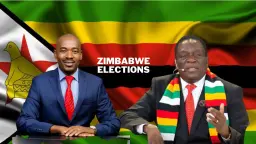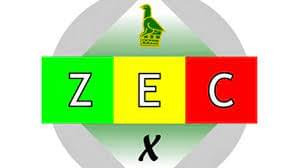The Institute for Security Studies (ISS) has expressed doubt about the Southern African Development Community (SADC) resolving the dispute over Zimbabwe’s recent elections. The ISS believes that failure by the regional bloc to intervene could hinder Zimbabwe’s debt arrears negotiations.
While President Emmerson Mnangagwa was declared the winner of the presidential elections, the main opposition, Citizens Coalition for Change (CCC) led by Nelson Chamisa, has disputed the outcome, calling it a “gigantic fraud.”
The SADC Election Observer Mission (SEOM) also highlighted that the elections did not meet regional and international standards. The ISS suggests that the SADC is unlikely to challenge the SEOM report or prioritize the concerns, opting instead to maintain stability and constructive engagement. Said the ISS in a statement on Monday:
Not all member states will be comfortable with SEOM’s findings, which could set an unwelcome precedent that represents a departure from its previous approach.
The Sadc probably won’t backtrack on its SEOM report. It will park the concerns rather than elevate them to a rejection of the election result.
In addition, the Sadc Panel of Elders’ visit to Zimbabwe is unlikely to change this scenario. The initiative has been shrouded in confusion, with no clarity on its goals and mandate, or if Sadc might retain a formal brief on Zimbabwe.
The international community and the African Union are also expected to pursue a conciliatory approach, taking into account Zimbabwe’s ongoing debt resolution program. However, the ISS notes that the Mnangagwa administration’s commitment to good faith and partnership remains uncertain. Said the institute:
The regional and international communities will likely seek a conciliatory middle-of-the-road approach under the guise of constructive engagement.
Creditors seek the Zimbabwean government’s commitment to stay engaged in the AfDB process, with its three pillars of governance, economic reforms and land reform.
They will have to live with the unsettling reality that the Mnangagwa administration is not a partner you can do business with and expect to act in good faith.
It remains to be seen who will buckle first, although Zanu PF is unlikely to concede any ground. It can rely on Sadc’s collective management style grounded in comradeship and the primacy of stability rather than confrontation or action.
Zanu PF is also the past master of diplomatic manoeuvre in the region, as the Sadc Tribunal case showed. Nevertheless, the country faces a political dilemma, and getting that genie back in the bottle won’t be easy.
Mnangagwa was inaugurated on Monday in Harare, with the attendance of three presidents, former presidents, ambassadors, former Vice Presidents Joyce Mujuru and Phelekezela Mphoko, and former first lady Grace Mugabe, among others.
Source Pindula










